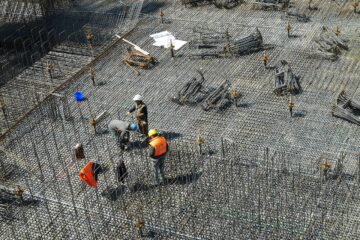![]()
Introduction:
In this case, the Supreme Court answered many relevant issues regarding section 499 &500 of I.P.C i.e Defamation. The major issue regarding Defamation is of distinction between libel and slander.
- Libel – when defamatory imputation is done in written form.
- Slander – when defamatory imputation is done in oral form.
Another issue regarding the difference of Indian judiciary that of the British counterpart on concepts that are originally English but are also implied in the Indian system in this case defamation being English concept but applied here differently.
The major discussion is on section 202 and 203 of CrPC regarding the power of magistrate for dismissal of the complaint on the basis of lacking evidence for starting the trial. As the requirement of evidence for stating a complaint to the trial stage.
Facts of the Case
This case is being discussed in the Supreme Court regarding the decision of the Delhi high court.
Respondent – Moti Ram
Appellant- Balraj Khanna represented by C.K. Daphtary
One of the major questions is being whether magistrate has that there is evidence to support allegations in the complaint and not whether the evidence is sufficient for the conviction at the enquiry stage or magistrate only has to be satisfied that the prima facie case is made out.
Facts
- Respondent has filed a complaint against the appellant and others under section 500 of IPC alleging that appellants made certain defamatory comments regarding his character and working in the government office and that caused the suspension of the respondent
- Respondent during December of 1964 was working as the liaison officer in Municipal Corporation in Delhi, appellants were members of the standing committee at that time.
- Primarily appellants and respondent were not in good terms with each other and appellants many times try to cause harm to the respondent on many issues.
- Appellant Balraj Khanna was having major control over the standing committee at that time so he used his influence on the committee against the respondent, called the committee to pass a resolution for the suspension of the respondent.
- Meeting held on December 10th of 1964 in which many officers, as well as media personals, were called and appellants made serious allegations against the respondent in front of all those present and passed the resolution for suspension, which decrement the value of the character of the respondent in front of people who were present.
- The major evidence regarding this case is being a report of that meeting created by the secretary of the corporation which was later submitted to commissioner very next day, marked as Ex.P.W. 3/B. in that reports it was alleged that many defamatory statements were made by the appellants against the respondent.
Reasoning of the Magistrate
The Magistrate examined respondent, as well as five other witnesses under section 202 Cr.P.C at this moment case, is under the pretrial stage, for considering whether this evidence is enough for starting the trail.
After the examination magistrate found evidence not enough for the complaint to go on the trial stage and dismissed the complaint, magistrate reasoned on two grounds.
- First reasoning is given by magistrate as there is no evidence in the record that states which allegations were made by appellants as it evidence used is report regarding the meeting, not specific statements made by any of the appellants.
- Second reasoning given by magistrate is that this defamatory statement comes under the one of exception present under section 499 of I.P.C.
But later Delhi high court set aside this order of magistrate as the court observed that it cannot be denied that there is no relevant evidence present against the appellant as the report has evidence credit because respondent has filed a complaint against all the appellants that were present on standing committee meeting and the report states that the defamatory statement was given by one all the appellant combined so it proves the presence of evidence.
Secondly high court observed that this case doesn’t come under any of the exception present under section 499 of I.P.C.
Arguments Given in Front of Supreme Court [1]
- Arguments are given from the side of the appellant.
- Learned counsel for the appellant contended that in the case of defamation it is important that actual word should be given out in the complaint and reproduction of that statements should not be taken.
- He supported his argument by stating major cases of high courts as well as English court. His argument based upon the English concept of defamation that is majorly focused on Libel and rarely gives importance to the other side of the coin which is slander.
- He argued by the support of major cases that the defamatory statement must be inserted in the complaint as the same word as stated by the alleged person. As the statement must be meant the same defamatory as intended it can only be found by court its meaning when statement produced should be the same.
Cases referred:
Charles bhedlaugh and annie basent v. the queer 3 Q.B.D. 607
Capital and countries bank limited v. georage henty and sons
Collins v. jones [1955]
So by English law that in the case libel it is essential words must be same in the indictment as to understand by court whether the case is of defamation or not.
Sarat Chandra das and Anr. V. the state
This was also used as the Indian reference regarding this case and it also extends that words in question must be proved by the complainant.
- Arguments are given from the side of the respondent [2]
- Learned counsel argued that the major question that is before the court is not regarding the judgment on the facts of the case but the major question is whether this amount of evidence enough to go for the trail as the question is about the process of pre-trial and whether this amount of evidence needed to make a complaint to move to trail stage or prima facie case is made out or not.
- Secondly learned council referred to the decision of Allahabad high court emperor v. Bhola Nath
The court observed that when the question arises that these words harm the reputation of the person we need to see not only the word but also the context in which they are used, as context by which the people may take as in the case of innuendoes, it is important to see the context.
- A further point made that it was unnecessary to prove word by word statement In the case of oral defamation. it is sufficient to prove the substance of the defamatory imputation as the reasoning behind is that no honest witness would remember the exact word by word statement given by the accused in the case of oral defamation i.e. slander.
Judgment and Reasoning Taken up by Supreme Court [3]
- Firstly supreme court clears about eligibility for use of section 202 of Cr.P.C, the supreme court refers to the case of Chandra Deo Singh v. Prakash Chandra bose in which court sees in the preliminary enquiry of magistrate before the trial, magistrate only has to check whether evidence is in support for allegations in the complaint not to check whether this evidence will lead to conviction or not. The function of preliminary enquiry is just to check whether the prima facie case against the accused is made out by material in the complaint. Here, in this case, is to check whether evidence that is reproduction in the form of the report submitted by the secretary is enough to make prima facie case against the appellant.
- Court furthers agrees with the reasoning given by respondent as he filled the complaint against the whole of the appellants that were part of the standing committee in which the statements were made and were put out in report produced as evidence and disagrees with the argument of the appellant that imputation must be word by word it was rejected as the matter is in slander not libel in the matter and oral defamation is hard to me remember word by word by any honest witness. So courts differ from the English counterpart regarding libel stance and differ in slander and not necessary to see only words but also understand the context that was harming reputation of the person.
- As this being a question on pre-trial stage it is important to[4] understand that defamatory statements have to be proved by the complainant against accused in the process of trial, a complaint cannot be dismissed by mere not producing exact statements spoken by accused. It is in the course of trail that will reveal whether the statements were made by accused of not. A trail must be conducted. Here Supreme Court agrees with the reasoning of the high court. Supreme court also sees that this complaint and evidence fulfil the requirement for the complaint to be forwarded for trial and complainant has to prove in the course of the trial the allegations made in the complaint are true or not.
- Supreme court disagrees on second reasoning of the high court that this case comes under the exception under section 499 of I.P.C. supreme court sees that this process will be argued in course of the trail as this case is in pretrial phase this reasoning will not be applied here.
- Supreme Court agrees with the high court to set aside the order of magistrate under section 202 of CrPC and appeal fails.
References:
[1] Balraj Khanna & Ors. Vs Moti Ram, Legal Authority (2020), https://www.legalauthority.in/judgement/balraj-khanna-ors-vs-moti-ram-34611 (last visited Jul 30, 2020).
[2] Balraj Khanna & Ors. Vs Moti Ram, Legal Authority (2020), https://www.legalauthority.in/judgement/balraj-khanna-ors-vs-moti-ram-34611 (last visited Jul 30, 2020).
[3] Balraj Khanna & Ors vs Moti Ram on 22 April, 1971, Indiankanoon.org (2020), https://indiankanoon.org/docfragment/1946272/?formInput=203%20of%20cr.p.c (last visited Jul 30, 2020).
[4] Balraj Khanna & Ors. Vs Moti Ram, Legal Authority (2020), https://www.legalauthority.in/judgement/balraj-khanna-ors-vs-moti-ram-34611 (last visited Jul 30, 2020).



0 Comments